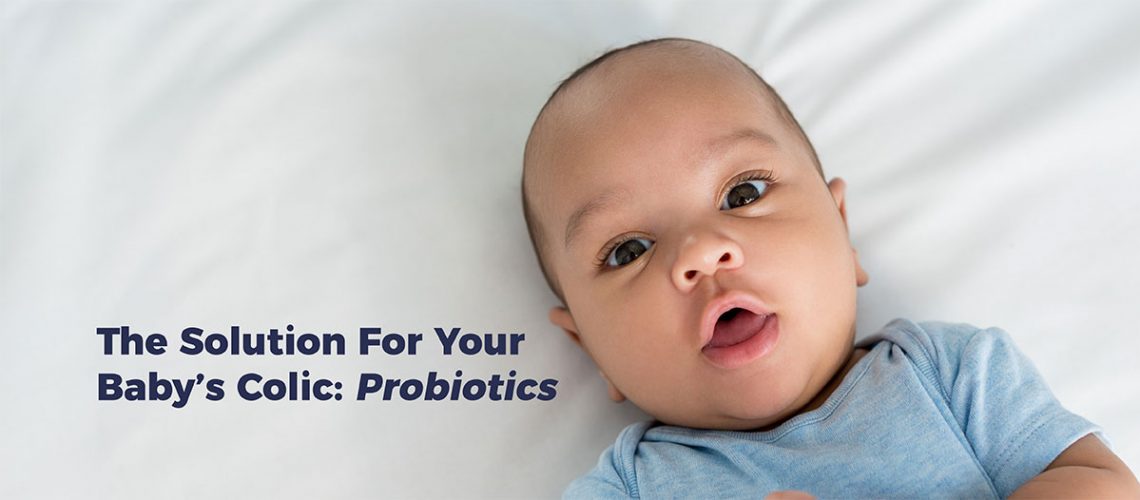Digest This
Click on the topics below to learn how probiotics can improve your digestive health, naturally.

The Solution For Your Baby’s Colic: Probiotics
- @drHoberman
- Children’s Health
If we took a poll of parents and asked them about common health problems they dread the most with their healthy newborn child, there’s no doubt that the frequent and prolonged distress that comes with colic would top the list. Fussiness and crying are expected with babies during their first year, particularly when they’re uncomfortable, tired or hungry.
But, when the crying becomes intense, sudden and continuous — lasting at least three hours a day several times a week, then continuing for more than three weeks — it’s a safe bet colic is the problem.
Many factors play a role in triggering colic. A number of them are connected to a baby’s developing gut health, including acid reflux, too much gas (due to swallowing air while crying) and gut bacteria imbalances.
During a lengthy crying fit, parents may do just about anything to console their colicky babies, including treating them with drops of simethicone, an over-the-counter drug intended to break up gas bubbles in the gut.
Simethicone may be a more convenient treatment, but is it really more effective than giving colicky babies a probiotic?
Probiotic Advantages
Generally, the consensus on using simethicone is very mixed with some resources and health professionals finding very little evidence that it has any value in treating colic. On the other hand, probiotics are emerging as a far more effective and direct way to relieve colic.
A recent report appearing in the medical journal Beneficial Microbes underscores this difference, comparing the benefits of simethicone to a multi-strain probiotic among 87 babies (fed by formula or breast milk) for four weeks.
Although there were no major disparities in the number of times babies cried in either group, infants responded well to the multi-strain probiotic, reducing the number of crying days overall and how long they cried at night.
These results are further evidence that unhealthy imbalances in gut bacteria among babies who lack some key strains of beneficial bacteria from the Lactobacillus and Bifidobacterium families may be at the root of colic and may be better addressed with a probiotic.
In fact, four of the beneficial strains and the prebiotic (FOS) used in this study are the same ones in EndoMune Junior Advanced Probiotic Powder, formulated for newborns through age 3.
An important doctor’s note: Please check with your pediatrician before giving your baby with a probiotic!
References
There Is An Endomune Probiotic For Every Lifestyle
-
EndoMune Metabolic Rescue
$44.95 -
EndoMune Advanced Probiotic
$42.95 -
EndoMune Companion Pack
$112.93








